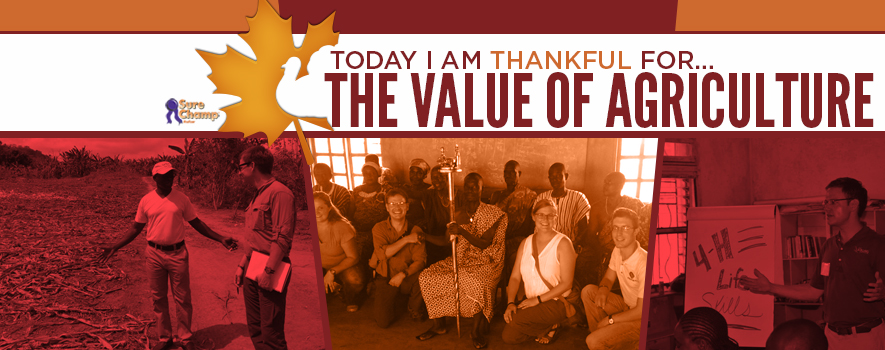
By, Rhonda McCurry
Trent McKnight says he has a lot to be thankful for. Each day it is a different recognition, but they are all parts of his life he knows not to take for granted.
Number one, he says, is waking up and being able to turn on lights with the flip of a switch. A second is to be able to take a hot shower. And number three, McKnight is thankful for the ups and downs of agriculture life.
“Just as it states in the FFA Creed – the joys and discomforts of agriculture life – I am thankful for the hard work ethic that it taught me,” he says. “I am thankful for the part of the industry that has a very moral outcome and objective to put food on tables. I am grateful to have part of that in this country and internationally. It is profound industry and difficult at times, but I’m very thankful to be part of it.”
McKnight has been fortunate, he says, to experience life outside of the U.S. Two years ago he started an international outreach organization called AgriCorps. With a name similar to the international charity of PeaceCorps, AgriCorps focuses on bringing American volunteers to developing countries to teach and research agriculture among those native people.
McKnight says spending time in developing countries such as Ghana has shown him how Americans will discuss abstract things like family, freedom and friends as reasons to be thankful. While these are important he says each word is not descriptive enough to provide real answers. If he were to ask Ghanans what they are thankful for they would respond with very real answers like, “I am thankful for the shoes on my feet,” and “I am thankful it didn’t rain all day so I can get to my farm and work.” These answers are very real and understandable and show McKnight how Americans can sometimes miss the essence of what gratitude is all about.
“When we begin to look at our lives through the many things we ought to be thankful of and get out of the stratosphere of things that no one really understands what they are,” he says. “In other countries people are thankful for very tangible things. The point is to look around and to never disregard something too small as being thankful for it.”
And perhaps those who work day in and day out in American agriculture do take it for granted. Agriculture commodities are one of the many goods traded from the U.S. and ag is one of the few industries with a trade surplus, which means it sells more commodities globally than it buys. This is good for the American farmer, who can be thankful for the age of agriculture innovation, as well as the importance of strong ag and trade policy.
“The world we live in is complicated and we’re constantly faced with challenges of trade and moral questions as to what that might look like on global scale,” McKnight says. “But I think we should be very thankful that our country has the support mechanisms we need to sustain an industry that has come to market failure. Other countries don’t have the support network or policy in place to support farmers and allow them to find success.”
When Americans consider what they should be thankful for this season, McKnight encourages people to look for Thanksgiving inside the big picture. He says it’s the small things we do in every day life that allow us to be present and understand the meaning of gratitude.
“We should be thankful for the role of agriculture in our daily lives because we all want to eat,” he says.

